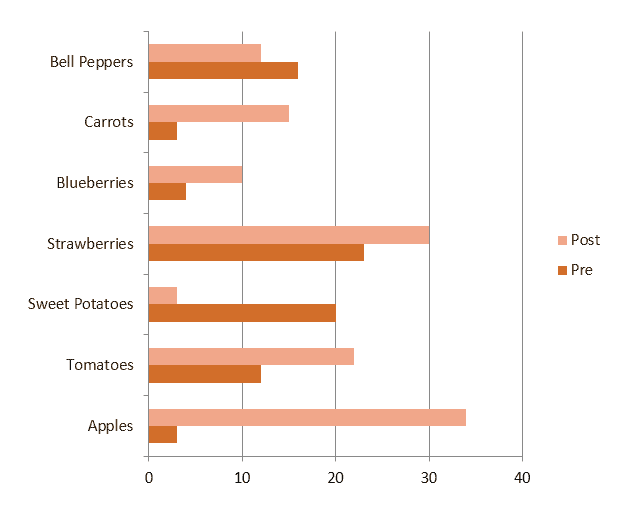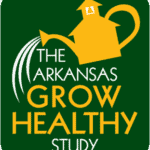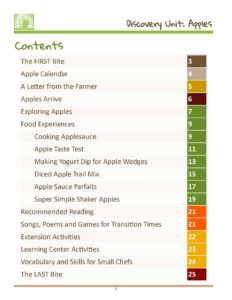Together We Inspire Smart Eating!

Kids who eat healthy become adults who eat healthy. Educators use WISE to encourage kids and families to discover fresh, locally grown vegetables and fruits in authentic, developmentally appropriate ways.
Three Education Components
Curricula
We use food experiences, songs, games and activities to help children explore WISE foods and learn healthy eating concepts. The program includes
- Lesson plans for units focused on 8 different fruits and vegetables
- Budget-sensitive recipes
- Fun activities and learning center ideas to integrate food experiences with other learning domains, such as math and reading.
Family Engagement
Technology helps WISE connect to families in appealing ways!
- Take-home activities and recipes
- An owl mascot, Windy Wise, who brings letters from local farmers to families
- Automated content and support for classroom Facebook page
Educator Training
Our six-hour research-based training covers
- The impact of educators as role models
- Recommendations for positively influencing children’s eating habits.
- How to implement WISE in the classroom.
Visit Windy WISE on the web!
Sneak Peek
Contents
The WISE curriculum includes eight units, each on a different target food. Each unit introduces new, creative recipes, learning center ideas, and activities. Do them all or pick and choose to suit your program. The curriculum includes creative ideas and step-by-step guidance.
Results
Proven Results!
WISE is effective at increasing fruit and vegetable intake at home. That’s because WISE was developed using emerging science and parent surveys. Look at the results for an Arkansas Head start program.
We surveyed 806 low income parents and found that 60% used multiple technologies on a daily basis. Plus, they were interested in receiving nutrition and parenting info via technology.

Number of Families Eating Target Foods Twice Per Week or More.
Publications About WISE
Swindle, T., Ward, W. L., Bokony, P.A., Pettit, D., & Whiteside-Mansell, L. (2014). Technology use and preference by low-income parents of young children: Demographic patterns and implications for intervention. Journal of Nutrition Education and Behavior. Advance online publication. doi: 10.1016/j.jneb.2014.06.004
Ward, W. L., Swindle, T., Kyzer, A., Whiteside-Mansell, L. (2014). Low Fruit/Vegetable Consumption in the Home: Cumulative Risk Factors in Early Childhood. Early Childhood Education Journal. Advance online publication. doi: 10.1007/s10643-014-0661-6
Swindle, T., & Whiteside-Mansell, L. (2014). Structured Food Experiences: A Preliminary Evaluation of the WISE Curriculum. Journal of Nutrition Education and Behavior, 46(4), S133.
Swindle, T., Whiteside-Mansell, L., Bokony, P., & Ward, W. (2014). Nutrition Experiences of Early Childhood Educators: Current and Retrospective Reports. Journal of Nutrition Education and Behavior, 46(4), S172.
Swindle, T., Ward, W.L., Whiteside-Mansell, L., Brathwaite, J., Bokony, P.A., Conners-Burrow, N., & McKelvey, L.M. (2013) Pediatric nutrition: Parenting impacts beyond financial resources. Clinical Pediatrics. doi: 10.1177/0009922813505904
Swindle, T. & Whiteside-Mansell, L. (2014, June). Structured Food Experiences: A Preliminary Evaluation of the WISE curriculum. Poster submitted to Society for Nutrition Education and Behavior Annual Conference, Milwaukee, WI.
Swindle, T. & Whiteside-Mansell, L., McKelvey, L. (2012). Food Insecurity: Validation of a two-item screen using convergent risks. Journal of Child and Family Studies. 22 (7), 932-941. doi:10.1007/s10826-012-9652-7
Ward, W.L., Swindle, T., Kyzer, A., Whiteside-Mansell, L. (in press). Early Childhood Fruit/Vegetable Consumption in the Home: Cumulative Risk Factors. Early Childhood Education Journal.
Contact
Learn More
 WISE is funded by Agriculture and Food Research Initiative Competition Grant No. 2011-68001-30014 titled “Interventions for Obesity Prevention Targeting Young Children in At-Risk Environments: An Integrated Approach” from the USDA National Institute of Food and Agriculture.
WISE is funded by Agriculture and Food Research Initiative Competition Grant No. 2011-68001-30014 titled “Interventions for Obesity Prevention Targeting Young Children in At-Risk Environments: An Integrated Approach” from the USDA National Institute of Food and Agriculture.


